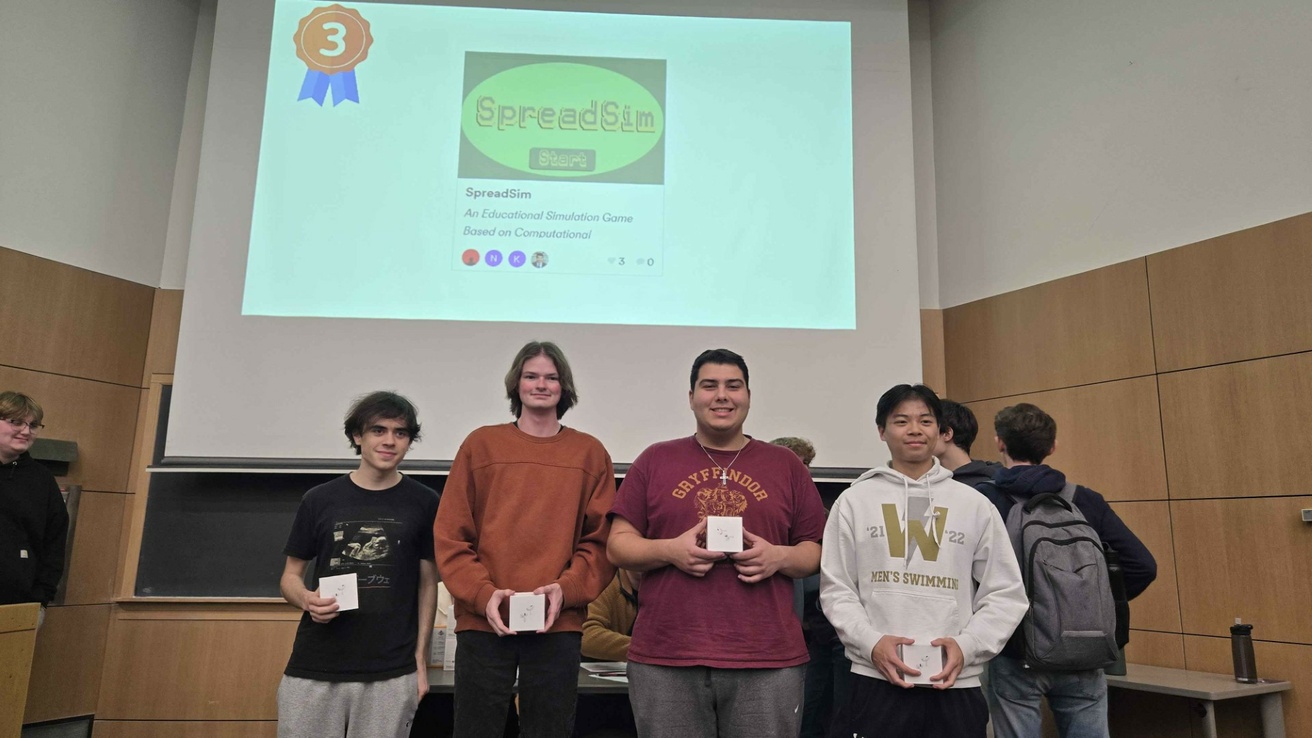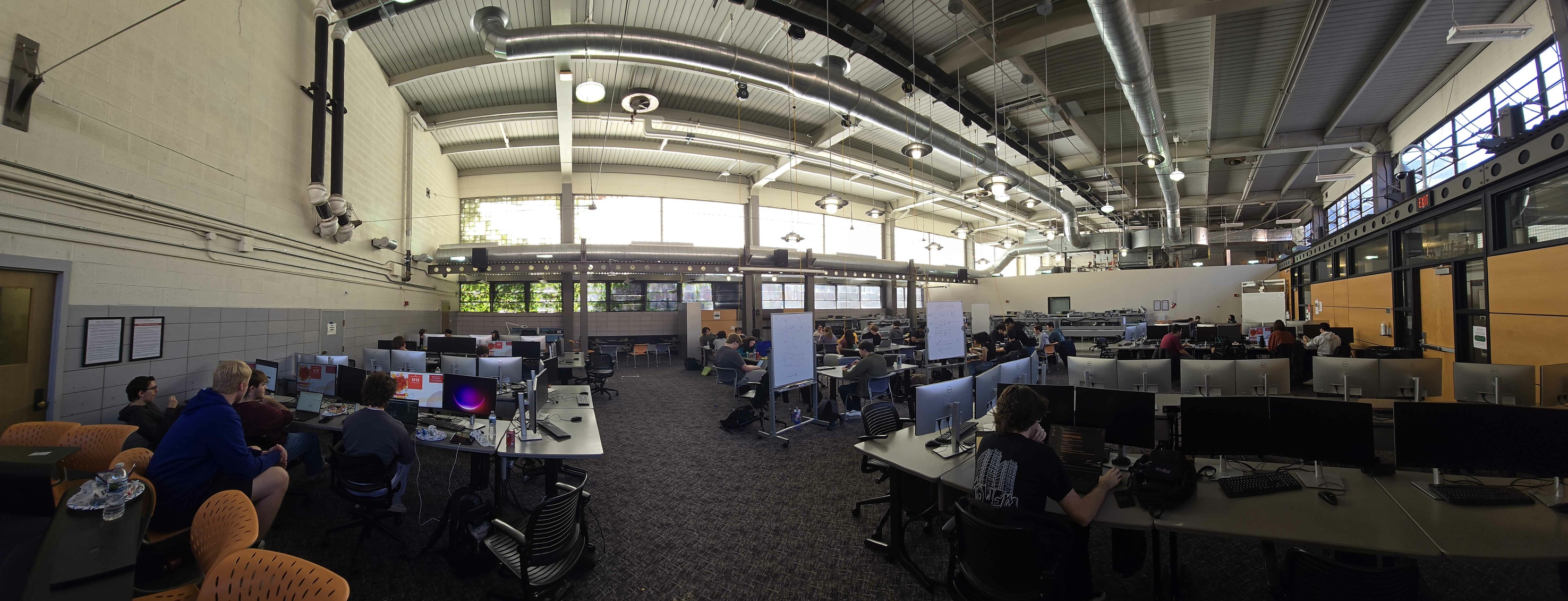Swan Hacks is Iowa State's annual hackathon event, where teams of 1-4 participants work together for 24 hours to compete for exciting prizes. Whether you're a first-time hacker or an experienced participant, everyone is welcome to join!

In November 2024, undergraduate students (3rd year computer science and music major) Eric Newton*, (3rd year computer science major) Fin Deevy, (2nd year computer science major) Kyle Chi, and (3rd year computer science and linguistics major) Nick Theuerkauf participated in Swan Hacks, securing third place with their creation of SpreadSim. The team set out to develop a project that went beyond the standard website or AI bot, drawing inspiration from Dr. Segre's talk on computational epidemiology on how infections spread throughout the hospital and implemented Agile methodology from Introduction to Software Development taught by Dr. Goddard.
Their mission was to educate the public on how viruses spread and the actions people can take to stop them, all within a gamified format. They aimed to make learning about epidemiology and awareness in shortages in medical supplies engaging and accessible, especially for younger audiences.
The most important step was planning with pen and paper. This prevented the group from the kind of "code vomit" common in hackathons and instead have a object-oriented approach Newton explained. Planning ahead also gave the group an idea of what they wanted for in-game assets.
To bring their vision to life, the team created custom pixel art inspired by retro video games like Pokémon and SimCity. This design approach was intended to make the educational content more relatable and fun, particularly for children. They even composed original music to enhance the simulation’s atmosphere and align it with the theme of their project.
The team's responsibilities were divided as follows:
- Newton and Chi handled the disease transmission and algorithms
- Newton composed and mixed original audio using Sibelius notation and Logic Pro audio software
- Deevy handled path finding and back-end systems
- Theuerkauf did the art and front-end work using Piskel software
Though despite challenges in figuring out how to implement the path finding and disease transmission algorithms and using unfamiliar technology like Godot, their collaborative efforts led to a unique and creative solution that captured the attention of Swan Hacks judges, earning them a well-deserved third-place finish.

What was your favorite part about Swan Hacks this year?
Newton: I love the thrill of the 24-hour deadline. There is nothing quite like finishing a piece of software on 3 hours of sleep seconds before the submission is due!
Deevy: My favorite part was being able to collaborate with my friends to make something meaningful based on research from UIowa's own professors.
How did participating in this hackathon help you grow as a developer or as a team?
Newton: I think we learned that management is equally as important as technical skill. I believe the reason our project was successful, is because we had a shared vision for the product right from the start, and through constant scrum standups, we continued to bring our development closer and closer to the original design we conceived on pen and paper.
Deevy: Participating in the hackathon helped me grow by learning how to directly collaborate with people on a real-world project, implementing the strategies from Intro to Software Development was super useful.
What advice would you offer to someone who is considering participating in a hackathon for the first time?
Newton: Find a niche and really commit to it! At the beginning, we had so many features planned for the sim, but we chose to narrow in on the algorithmic element of it. If your project is too ambitious, you will likely run out of time without having any one specific feature in a stable state. By being focused, you can have one quality feature done.
Deevy: My advice to anyone who wants to compete in a hackathon is to always keep working while at the event and to submit whatever you make, and to be proud of it. It takes a lot of time and effort to create any project outside of a busy schedule!

* Newton was also the sole undergraduate winner at this past Fall's UI Symphony Orchestra Concerto/Aria Competition, earning him the great honor to perform "M. Ponce - Piano Concerto No. 1, 'Romantico' live with the Iowa Symphony orchestra on March 31! This Voxman Hall concert, free and open to the public, will also be livestreamed here.
